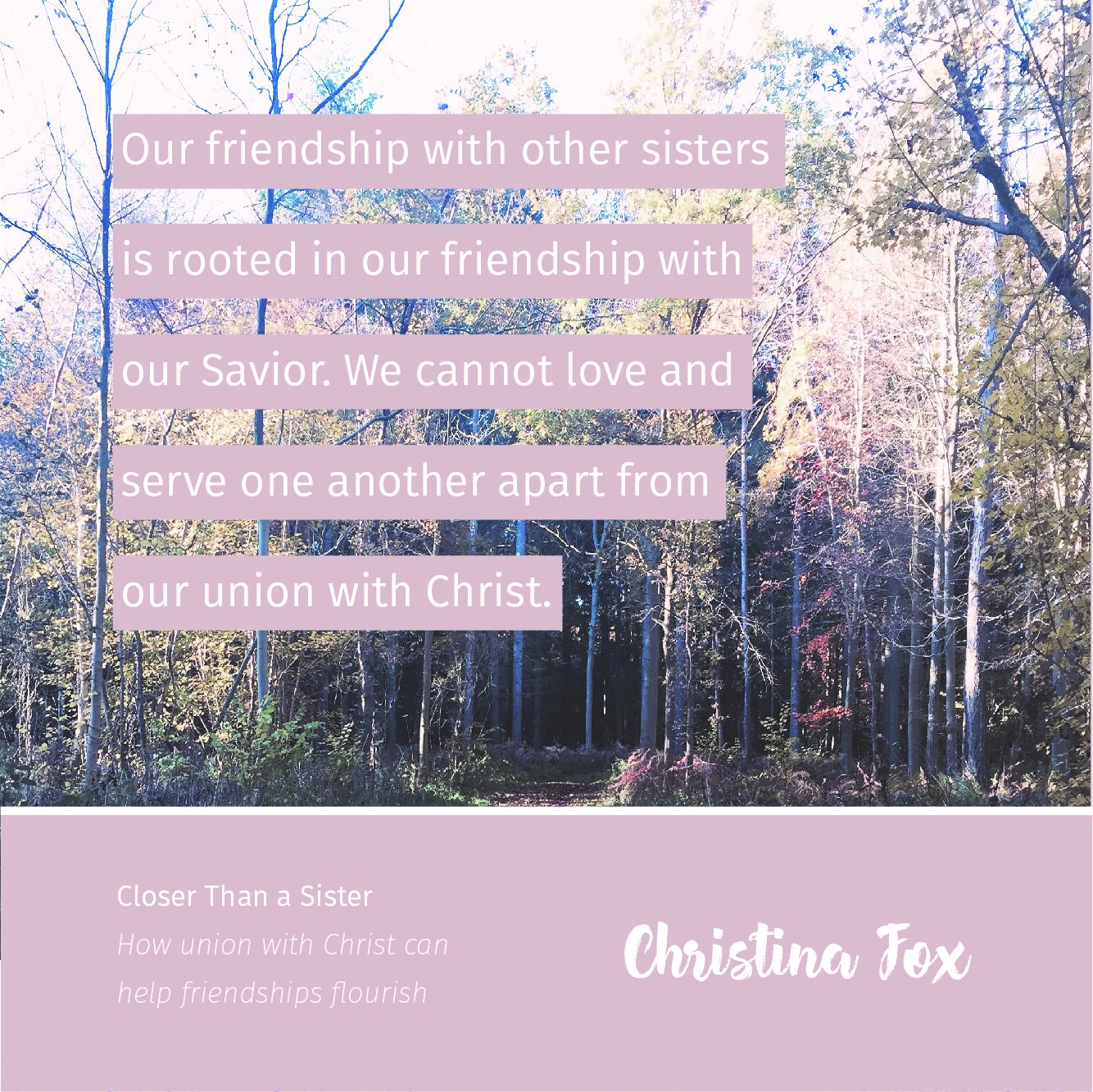I shared in my book, Closer Than a Sister, that as I wrote it, I had to live out what I was writing while I wrote it. That's because when I first had the idea to write Closer Than a Sister, I was enjoying sweet community and fellowship with my church family. But it wasn't until a year or so later that I signed a contract to write it, and, in a twist of irony, I had moved away from that community. I basically wrote the book community-less.
To be honest, it's challenging to write about something you no longer have.
You might be in a similar place. Perhaps you've just moved to a new place and are seeking community. Perhaps you've been in a church for a while and still feel like a stranger there. Maybe everywhere you have been in recent years fails to match the community you experienced at some point in the past. Whatever your current situation, if you are longing for community, I wanted to share a few suggestions for cultivating community in your local church.
Before I share those ideas, I want to say that I am intentional in using the term "cultivate." We can't create Christian community; God already has. Through the blood of Christ shed for his people, God created the church. It is filled with redeemed brothers and sisters who are united to Christ and to each other for all eternity. So the community already exists. But like a seed buried in the soil, we need to nurture it to help it grow.
From Closer Than a Sister: “Ultimately, to cultivate friendship, we have to be a friend. We often look for others who will be a friend to us, but the place to start is to be a friend to others. Be the friend you desire to have.”
1. Pray: If you desire close Christian community, pray for it. Pray that God would bring you the people he desires in your life. Pray for opportunities to reach out and serve, to befriend others, and disciple someone else. Also, pray through all the twists and turns, ups and downs, and challenges you will likely encounter in friendship. Friendship and community is God's idea. He desires it for us. But it has to be rooted in him. Jesus has to be our friend first before we can be a friend to others. So abide in Christ through prayer through this process.
2. Participate: Participate in whatever your church currently offers. If they offer Bible studies, join one. If they have small groups which meet in other people's homes, attend one. If they have any fellowship opportunities, participate in them. The best way to know people is to be a part of what is happening in your church. You can't know others or be known by your church community when you slink into the last row just as the pastor begins the sermon and slide out right as he gives the benediction. Take advantage of any and every opportunity for fellowship and participation in the life of your church.
3. Purpose: Purpose to engage with other people. Be intentional. Seek out others who are in need and meet those needs. Call someone whom you know is struggling and invite them to coffee. Be watchful for those on the outside, for those who are new or who don't seem to fit in and get to know them. Don't wait for friendship to happen to you, be a friend to others.
4. Plan: Make intentional plans to develop community. For the longest time, my husband and I invited any new family who visited our church to share a meal with us. We made many great and lasting friends this way. Our home was like a revolving door; we always had people coming or going. We hosted small groups, Bible studies, parties, fellowship events, moms playgroups, and more in our home. And since moving to a new town, we've done the same thing. Plan to put something in the oven on a Sunday morning and invite a family from church over for lunch afterward. Choose a book and invite several people to read it with you. Meet together weekly or monthly to talk about it. Call a few other moms and invite them to meet at a park for the kids to play together. Consider starting a weekly play date with other moms.
Just as it takes time for a planted seed to grow and develop into a full and thriving plant, it takes time for friendship and community to grow. Deep friendships are built over time and often through shared trials and challenges of life. The longer we walk with someone in our journey of faith, the more we experience together and the deeper our friendship grows. But you have to start somewhere, so why not start where you are right now?


















